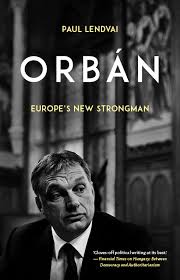 Since Viktor Orbán was returned to the office of Prime Minister of Hungary in May 2010, he and his party Fidesz have transformed the political system of Hungary in a sustained way, argues Samuel Salzborn, Adjunct Professor at the Institute for Political Science at Giessen University, Germany. Democratic participation and participation rights have been massively restricted, he writes for Open Democracy:
Since Viktor Orbán was returned to the office of Prime Minister of Hungary in May 2010, he and his party Fidesz have transformed the political system of Hungary in a sustained way, argues Samuel Salzborn, Adjunct Professor at the Institute for Political Science at Giessen University, Germany. Democratic participation and participation rights have been massively restricted, he writes for Open Democracy:
Their goal is to fight against the (liberal) individual and to struggle instead for the (ethnic) collective: it is not about the individual human being as subject, but instead about the human being as part of a very specific cultural community. In 2012, the [National Endowment for Democracy’s] Journal of Democracy was still talking about “Hungary’s Illiberal Turn” – using Hungary’s own chosen propaganda term for talking about the country as an “illiberal democracy”.
 “Today, one must attest that Hungary should no longer be understood in terms of a democracy at all,” Salzborn contends.
“Today, one must attest that Hungary should no longer be understood in terms of a democracy at all,” Salzborn contends.
On Hungary, skeptics say engaging Orban might legitimize his pursuit of an “illiberal state” lacking effective checks and balances on his power without getting much of anything in return, Bloomberg reports.
“Criticism alone is not a strategy,” according to David Cornstein, the U.S. ambassador to Budapest. “We must pursue engagement, not just with the Hungarian government, but also with the Hungarian public.”
 “The Obama administration was excessively rhetorical and insufficiently transactional” on Orban, said William Galston, a senior fellow at the Brookings Institution in Washington. “The threat is Trump will be excessively transactional and insufficiently rhetorical.”
“The Obama administration was excessively rhetorical and insufficiently transactional” on Orban, said William Galston, a senior fellow at the Brookings Institution in Washington. “The threat is Trump will be excessively transactional and insufficiently rhetorical.”
In spreading his message and blocking alternative viewpoints, Orbán and Fidesz have utilized their increasing monopoly on the media, particularly outside of Budapest, to further Hungary’s transformation from liberal to illiberal. Hungary’s rural areas are more culturally traditionalist, nationalist, and xenophobic than Budapest, the nation’s only truly cosmopolitan city—and Orbán’s hold on the rural media is one way he keeps them that way, notes analyst Charles Dunst.
 “The role of local media is not just to transfer the opposition’s opinion and issues from Budapest to the countryside, but also to guarantee a democratic public sphere on the local level, which can also strengthen the local interests vis-á-vis the central will,” said Daniel Mikecz, a researcher at the Budapest-based think tank Republikon Institute.
“The role of local media is not just to transfer the opposition’s opinion and issues from Budapest to the countryside, but also to guarantee a democratic public sphere on the local level, which can also strengthen the local interests vis-á-vis the central will,” said Daniel Mikecz, a researcher at the Budapest-based think tank Republikon Institute.
“For Viktor Orbán and the Fidesz party, it has been a crucial issue since the late 1990s to have their own loyal media, as they perceived a liberal-socialist bias in the mainstream media,” Mikecz said. “Since 2010 [when Orbán won election], Fidesz could continue to expand its media supporters by using its governmental position and power.”







